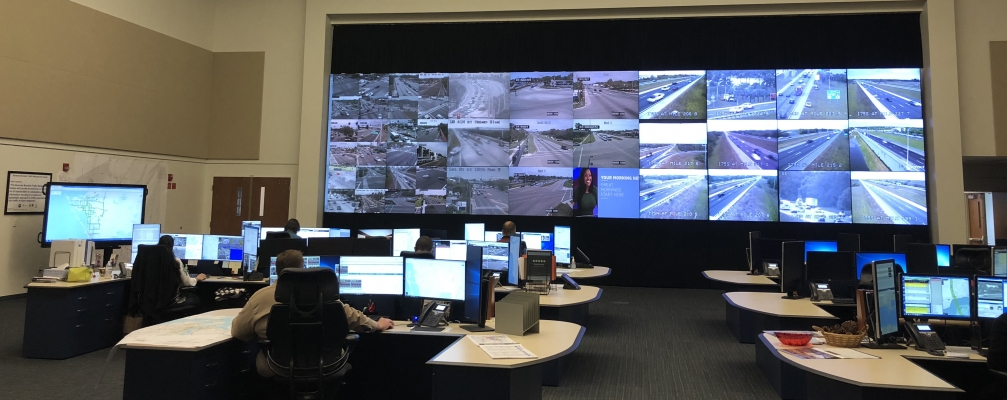TREC Prepares Cities with Transportation Hazard Recovery Plans

Quickly regaining use of a city's transportation system after a major disaster is critical to relief efforts. To help cities recover from emergency situations, TREC is working to develop a transportation recovery plan that includes transit, travel demand management (TDM), social media, and intelligent technologies.
The plan is supported by a research grant awarded to Portland State University by the Federal Transit Administration (FTA), an agency of the U.S. Department of Transportation (U.S. DOT), as part of its Innovative Safety, Resiliency, and All Hazards Emergency Response and Recovery Demonstration program. The project, led by TREC researcher John MacArthur, includes the development of a two-day training course offered to six metropolitan regions nationwide: El Paso, Texas; Savannah, Georgia; Tampa and Broward County, Florida; Lake Charles, Louisiana; Rochester, New Hampshire and Saco, Maine.
The audience for this training program? Transit and transportation planners who are responsible for their city's transportation recovery and emergency operations plans. Getting decision-makers on the same page is a key to getting systems back online.
The two-day course covers:
- Defining all Hazards Recovery Planning
- State of the Practice in Portland
- Lessons learned from past events
- Identifying processes for defining and identifying a regions’ vulnerable transportation assets
- Risk Assessment
- Tools and methods to prioritize investments to be made during recovery phase and beyond
- Roles and responsibilities in recovery planning and implementation
- Recommended strategies for multi-modal recovery plans including operations, communications, transit, TDM, ITS and leveraging use of social media
- Legal, financial and contracting Issues
- Development of next steps for developing, refining, training, and testing a recovery plan
The goal of the training is to provide participants with the tools, knowledge, skills and resources to develop an emergency transportation recovery plan and to recognize the specific needs, resources and relationships with emergency responders within the metro region.
By bringing together transportation professionals and emergency management professionals, the region can better coordinate preparedness and recovery planning efforts.
The National Institute for Transportation and Communities (NITC), one of five U.S. Department of Transportation national university transportation centers, is a program of the Transportation Research and Education Center (TREC) at Portland State University. The NITC program is a Portland State-led partnership with the University of Oregon, Oregon Institute of Technology, University of Utah and new partners University of Arizona and University of Texas at Arlington. We pursue our theme — improving mobility of people and goods to build strong communities — through research, education and technology transfer.
